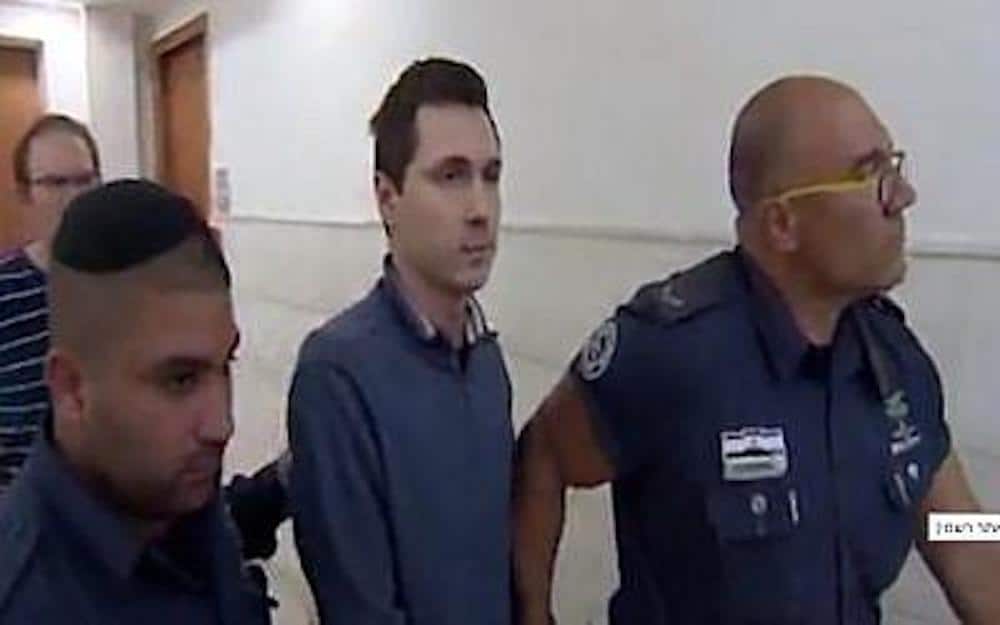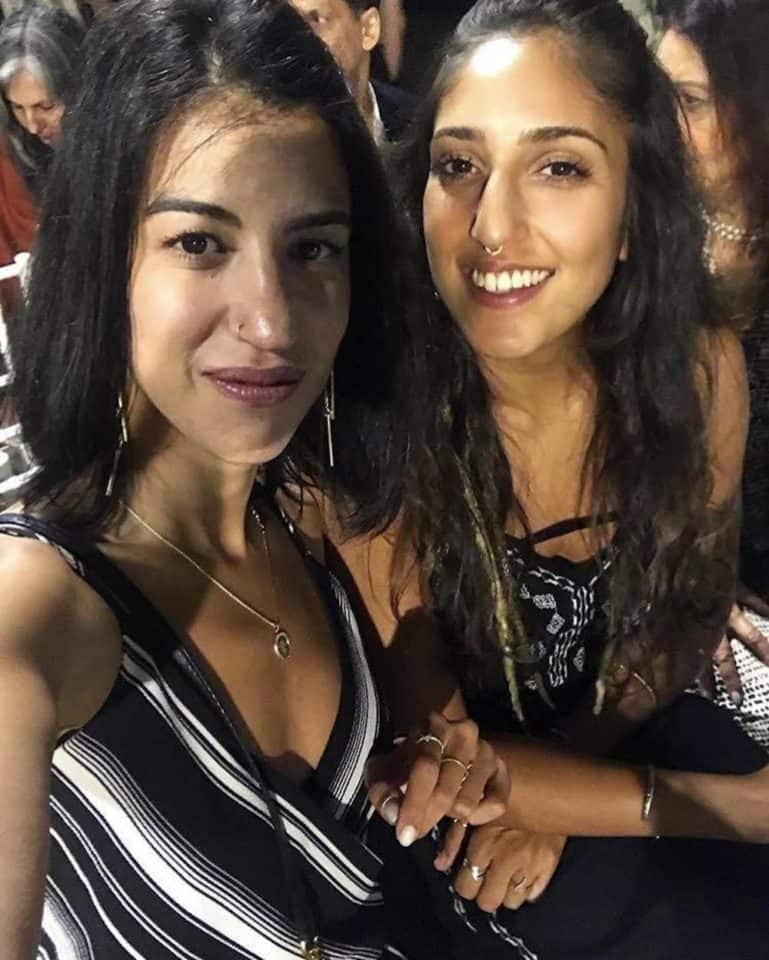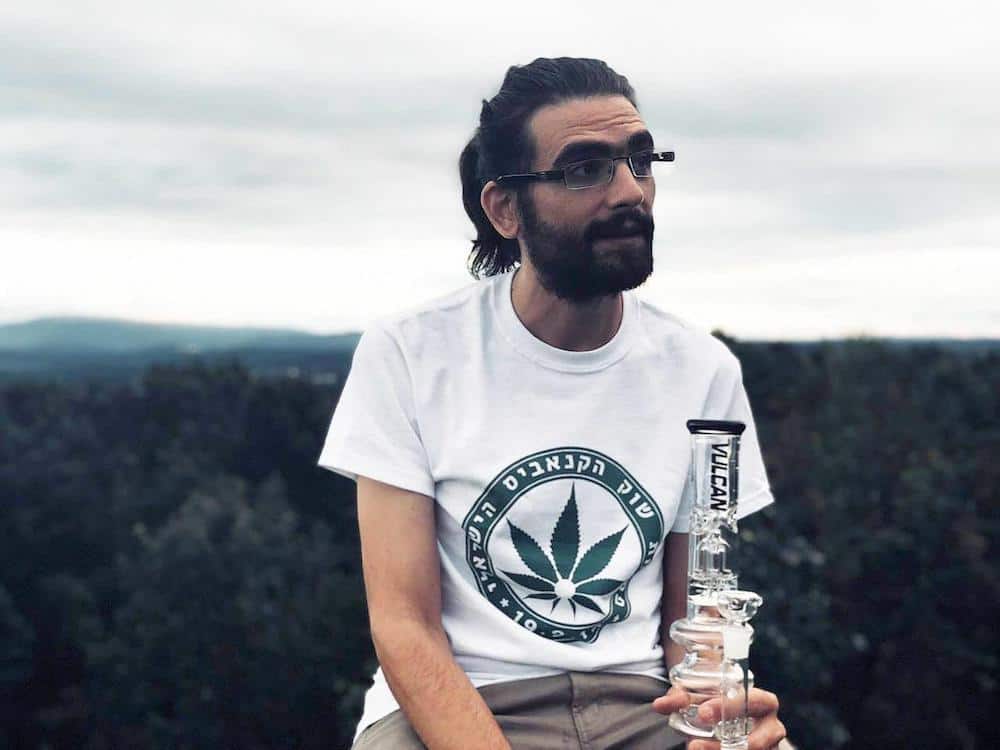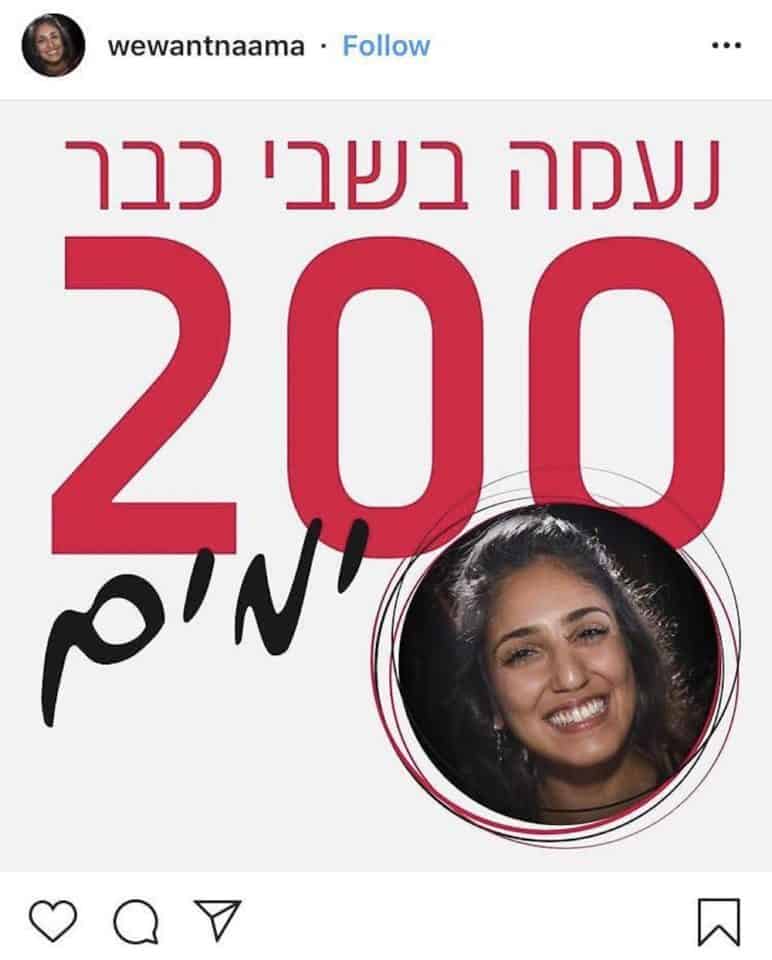An American woman returning to her home in Israel from yoga training in India remains detained in a prison outside Moscow, facing a disproportionately harsh sentence on a trumped-up cannabis smuggling charge that many believe is politically motivated.
Naama Issachar, 26, a Fair Lawn, New Jersey native whose family moved to Israel during her teenage years, finds herself an unsuspecting pawn in a high stakes game of international political chess, after just under 10 grams of weed were discovered by Russian police in her luggage during a stopover at Sheremetyevo Airport in Moscow. The geopolitical machinations and intrigue that preceded and led to her arrest and imprisonment now also include a Russian hacker wanted for extradition by both his and the US government, and the upper diplomatic echelons of some of the world’s most active military powers. Detained since April 2019, Naama faces another seven years in Russian prison if the top officials of the Israeli government aren’t successful in their efforts to negotiate her release.
Four thousand miles away, at Naama’s intended destination, Aleksey Burkov sits in the Israeli prison he has already occupied for almost four years. Burkov, 29, is a Russian hacker accused by the US of running a hacking and embezzling scheme that scammed millions from American credit card customers. He was arrested on an Interpol warrant issued by the US, while attempting to return home from what he said was a vacation with his girlfriend, at Tel Aviv’s Ben Gurion Airport in 2015.

The US government has been going through normal channels with Israel, and until recently, the process had been fairly standard for countries with an extradition treaty. When Burkov’s final request to delay his extradition was rejected by Israel’s Supreme Court recently, it was expected that he would shortly be traveling to America for prosecution and further imprisonment. The Russian government, according to some, saw an opportunity through Naama Issachar to keep an embarrassing citizen from falling into the hands of their counterparts in D.C.
Soon after Naama’s arrest, what had been a relatively simple possession charge was unexpectedly upgraded to smuggling by Russian authorities, and she was handed the outrageous sentence that she, her family, and supporters are fighting. Almost immediately thereafter, a prisoner exchange was offered by the Russians; Naama Issachar would be returned to her home in Israel if Aleksey Burkov was returned by the Israelis, where he could be dealt with domestically. Stuck between the demands of two powerful allies, Prime Minister Benjamin Netanyahu refused the exchange, but his office claimed in a statement that he “personally intervened on behalf of Naama Issachar in recent weeks.” Netanyahu also officially filed a request to Russian Premier Vladimir Putin for a full pardon. Israeli Justice Minister Amir Ohana signed off on the extradition of Burkov on October 30th, further throwing into question what diplomatic maneuvers PM Netanyahu could employ with Putin, though the two and their right-wing governments have historically had a close relationship over the last decade.
Why Naama Issachar Went to India
Naama’s older sister, Liad Gold, joined her on the first leg of her ill-fated trip to India, traveling from her home in New York City to meet Naama for extended traveling and backpacking. Liad spoke to High Times about the trip and aftermath. “We met up in Delhi back in January, she flew in from Israel and I flew in from The [United] States, and it was so awesome to have the chance to travel together,” she said.
Liad returned home a month before Naama was to return to her home in the Holy Land, never suspecting the story would take this bizarre and unforeseen turn. “That trip feels like a lifetime ago, even to me, a free person. I can’t even imagine what it must be like for her sitting there for so long.”
Her family and supporters, as well as Israeli media, have pointed out that there is more than just the convenience of the arrest, and timing of the suggested exchange backing up the notion that political factors are at play in the length of Naama Issachar’s sentence. In a similar case this year, American film student and medical cannabis patient Audrey Lorber, 19, was arrested at Pulkovo airport in St. Petersburg, Russia with about two-thirds of an ounce of weed, while vacationing there with her mother. Lorber was charged with “attempting to import marijuana purchased in the US into Russia,” according to the Moscow District Court of St. Petersburg, and released on September 18, with her time in detention of fewer than three months considered sufficient imprisonment. The day we spoke to Liad marked the 200th day so far since her sister had been imprisoned.
Tens of thousands of young Israelis travel throughout India every year, often submerging themselves completely into backpacking the country, touring its beaches, mountains, ashrams, and legendary electronic dance music and festival scene, after two or more years of mandatory army training and service that begins after high school and extends into their early twenties.

In Naama Issachar’s case, however, she wasn’t there to party, but to travel and reconnect with her sister, and immerse herself further in her passion, yoga, in the land of its birth. When Liad headed home, Naama stayed in the country for another month of training in the five-thousand-year-old practice.
“She did a yoga teacher training her previous time to India, and on this trip, she went to get more immersed in it, learn more, and start teaching,” Liad said.
Liad and Naama are not entirely sure how the 9.6 grams found by Russian authorities ended up in her bag. After 3 months of backpacking around the vast country, staying in hostels and guesthouses, a small bag of local weed would not look out of place among the spices and herbs that are a hallmark of Indian flavor and culture. At her trial, Naama took responsibility for not keeping track of her luggage, though she says she did not put the cannabis in her luggage and doesn’t know how it got there. Her suitcase was not in her possession when the grass was conveniently found in it by the authorities who then dangled her freedom in a hostage exchange.
This was certainly not the overseas trip that Liad’s motivated, athletic, mild-mannered sister had planned. “Naama” in Hebrew translates to “sweetness” or “pleasantness” and her big sister believes the label fits perfectly.
“She was always in after-school programs and hobbies, always had a lot of friends and she’s honestly overall a very, very loved person. She meditates, she’s totally zen, she’s not a drug-smuggling criminal. It was nine grams for fuck’s sake. Her favorite thing is sitting in her local coffee shop drinking a cappuccino.”
While Naama Issachar’s interests and time spent in India were primarily cannabis- free, the popularity of it there among her countryfolk may have partially led to her targeting by the Russian Federation’s law enforcement and diplomatic apparatus. Cannabis grows abundant and wild in India and has been smoked and ingested throughout the region in many forms since at least 2000 BCE, mostly as ganja, bhang, and charas. It is extremely popular among Israeli travelers in India, particularly as many of them de-stress and seek release and reintegration, after the pressures of the mandatory military service that most of them serve after finishing high school. According to Forbes, of the 75,000 or so young Israelis released from the army annually, a third will go backpacking for an average of 6 months, mostly through South and Southeast Asia.
In a country like Israel with long-running regional conflicts and a domestic police state regarding cannabis, some weed and a tour of India’s legendary electronic music festivals is just the release they need, and travel for an average of six months after army service has become a rite of passage. Many observers of the Russian, Israeli, and international cannabis and political scene speculate that with a large amount of such young Israeli’s making stopovers in Moscow on their way home from India, authorities there saw a cynical opportunity to cherry-pick an innocent Israeli-American as a negotiating tool to get their hacker back before American intelligence gets their hands on him.
Israel and Cannabis
Meanwhile in Naama Issachar’s home country, Israeli cannabis activist Gali Silver describes a mood of national outrage at the sentence, and what most see as clear political motivations. “I would say that ninety percent of the Israeli population are extremely mad about it, and we know [from media reports comparing Naama’s case to Lorber’s and others] that she received seven and a half years while other tourists received like a month, a ticket, and expulsion from Russia, so it’s clear that it’s political, we all know about it, we are all mad about it, people have been protesting,” she said. “She doesn’t deserve this punishment. Nobody deserves this punishment.”

Besides demanding action from government leaders, Israeli travelers have initiated a boycott campaign against Russian travel, encouraging each other not to visit the country, or take flights that include stopovers there. While it is early to speculate, the tactic may have an economic impact; according to the Jerusalem Post, in 2018 almost half of Israelis traveled abroad, with Russia serving as a popular and convenient stopover to and from points east, including India.
There is also growing outrage and resistance domestically in Israel over the continued criminalization of cannabis users, and this and other recent high profile cases are threatening to ignite that mounting tinder of frustration. Many are pointing out the hypocrisy of the countries leaders seeking release for an Israeli cannabis prisoner overseas—Netanyahu and other government officials have called the sentence “disproportionate” and unjust—while still keeping thousands of their own citizens locked up for weed ‘crimes’ at home.
“A lot of people are also saying that if they’re working to release her, and recognizing how unfair it is—which of course they should—they should release all the cannabis prisoners in Israel,” Silver said. “You’re going to release her, and what about the ten thousand cannabis prisoners in Israel? Right now the prisons are full with cannabis users or dealers.”
Exasperation over cannabis criminalization, whether at home or abroad, reflects a national contradiction: the population of Israel is among the most cannabis-friendly and experienced in the world, and at approximately 27%, the reported rate of pot usage in Israel may be the highest in the world. The small country also recently decriminalized possession of under 15 grams of flower, devotes more money per capita to cannabis research than any other country, and is the only country besides Canada with a state-run medical program.
Israel has also been a base for some of the most impactful scientific discoveries relating to cannabis, perhaps most famously the work over the last 50 years of Dr. Raphael Mechoulam, who discovered the endocannabinoid system and THC there; he still works on research and development from his laboratory at the Hebrew University of Jerusalem. Though they often tout the research and limited medical program they have funded or finally allowed, the authoritarian and security-minded government and law enforcement leaders continue to be significantly less progressive when it comes to decriminalizing cannabis use outside of clinical and highly restricted medical settings.
Gali Silver also has her own unfortunate personal experience. Her husband Amos Dov Silver is an Israeli folk hero and dissident cannabis activist whose direct actions for medicinal access and legalization included organizing the legendary “Big Bong Night” in 2014, in which over 1,000 people openly smoked cannabis in a park outside the parliamentary Knesset building in Jerusalem. Most notoriously, Amos is the primary creator of the supereminent online group Telegrass, a community based on the Telegram app that has been a source and connection point for countless Israeli cannabis patients, users, and providers since early 2017. Amos Silver has been targeted repeatedly for arrest and harassment by the Israeli government for his activism, and fled the country after he and over 40 other Telegrass care providers were busted in March 2018.

Amos Silver currently awaits trial after his own viral Eastern European escapade. He was extradited from Ukraine after being locked up there at the behest of Israeli authorities, and eluded a previous extradition attempt in a daring escape from Boryspil Airport in Kyiv that was broadcast on Ukrainian television. Gali is hopeful that Naama’s case, and the public sympathy and support for her, will extend to Amos, the other eleven Telegrass members still locked up in Israel, and the thousands of other cannabis prisoners there.
“I, and most of the cannabis prisoners families, want to send a formal request to the Prime Minister to say, ‘Hey, if you’re going to work to release her—as you should—let’s also release ours here,” Gali said. “I believe that everybody in prison for cannabis should be released, and that nobody in the world should be in prison for cannabis use.”
Hope Lives On For Naama Issachar
Over half a year since Naama Issachar’s detainment began, Liad Gold and the rest of Naama’s family still sometimes need to remind themselves the situation is real.

“Sometimes I still can’t believe that this is what’s happening to my baby sister. It’s straight out of a movie, but this is a real thing happening to a real human being who doesn’t deserve it,” Liad said. She and her family are spreading awareness online via the hashtag #FreeNaamaNow, and remain hopeful that the continued press attention and public pressure will lead to diplomatic success.
“The Prime Minister of Israel is heavily involved and dedicated to the release of my sister. We have to be optimistic. If you lose hope, you lose the whole damn fight, and we will never stop fighting for Naama’s freedom.”
The post Hash Hostage: Geopolitical Dispute Traps American Woman In Russian Prison appeared first on High Times.




0 DL LiNKS:
Post a Comment
Add yours...